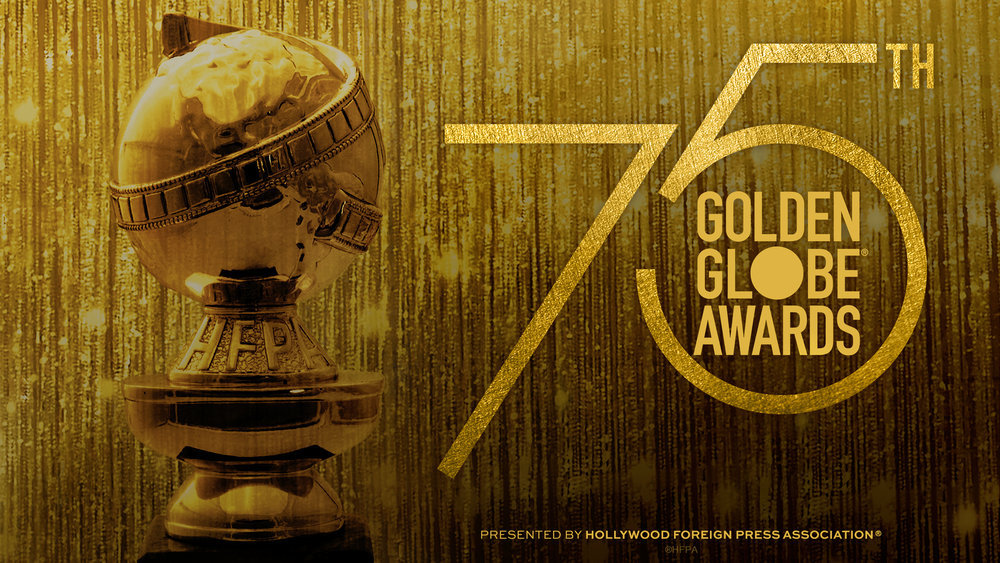At this year’s Golden Globes, the big motion picture and TV winners were female-centric stories: Martin McDonagh’s “Three Billboards outside Ebbing, Missouri,” “Lady Bird” and “The Shape of Water.” For television, the empowering “Big Little Lies” won four Golden Globes, and “The Handmaid’s Tale” and “The Marvelous Mrs. Maisel” each won two. The tone wasn’t just on stage but behind it, as the winners expanded on the Year of Women reflected at this year’s event.
Standing outside the Beverly Hilton on Sunday were ten women dressed in red robes and white bonnets: The Hollywood Handmaids. In front of them, they held the sign: “Silent No Longer.” In May, Hulu’s “The Handmaid’s Tale” became the first series on a streaming platform to win an Emmy for Outstanding Series. At the Golden Globes, it won for Best Television Series – Drama and Best Actress (Elisabeth Moss). But the series also sparked a movement. In March of last year, women dressed as Handmaids protested in Texas. That seems to have started in a national anti-abortion protest movement. At the Golden Globes, a group of Handmaids came to support the blackout; on the back of their bonnets was the phrase #TimesUp.

Moss addressed the socio-political issues raised by “The Handmaid’s Tale” in her acceptance speech by quoting Margaret Atwood, author of the book and the supervising producer of the series: “We were the people who were not in the papers. We lived in the blank white spaces at the edge of print. It gave us more freedom. We lived in the gaps between the stories.” Then she added, “Margaret Atwood, this is for you and all of the women who came before you and after you who were brave enough to speak out against intolerance and injustice and to fight for equality and freedom in this world. We no longer live in the blank white spaces at the edge of print. We no longer live in the gaps between the stories. We are the story in print, and we were writing the story ourselves.”
Backstage, executive producer Warren Littlefield commented on the cosplay protests saying, “There were a lot of times we wish we weren’t as relevant as we are. We went into development and then into production, and the world was a very different-looking place. It was not a Trump world, and midway through the first season, the reality changed. And I think each and every day we are reminded of what we care to follow, a responsibility to live up to Margaret Atwood’s vision and also to be a part of the resistance. And, today, we also join the resistance for ‘Time’s Up.’ So that feels, I think for all of us, a really important and good place to be, and we love that our work is being celebrated.”
Executive producer Bruce Miller specifically addressed joining the #TIMESUP movement, commenting that “the more we can talk about it, the more we can bring these conversations to the floor. Things have changed a lot since I started in television, and this seems like a tipping point where things are going to change quite a bit, and we are thrilled to just be here and be part of it.”
Frances McDormand noted that the HFPA has a female president, but prefers to keep her politics private. She did say she appreciated being part of the shake-up in the industry’s power structure because women weren’t at the Golden Globes for the food, but for the work.
McDormand’s co-star Sam Rockwell during his acceptance speech for Supporting Actor noted that McDormand was “badass” and “a force of nature,” but backstage he was asked about his black-on-black look. Rockwell was happy “that women feel empowered to say something” and added, “I think they deserve that. I think the rest of us should just listen.” When asked what else can men in this industry do, Rockwell explained, “I think really the issue is bullying. I think people have to stop being bullies” and treat other people with more compassion.
Tony Award-nominated and Laurence Olivier Award-winning Martin McDonagh, who wrote and directed “Three Billboards” went home with Best Motion Picture – Drama and Best Screenplay – Motion Picture. Backstage, he spoke about his support, saying “the only thing I’ve got control over is telling a story like this and, you know, doing everything one can do to make joy on your set the way it needs to work, the way normal people would always do. But I think one of the things that has come out about Weinstein and all the other things is that people knew for years. I hope, from now on, people will speak up a little more quickly. I know, if I hear something, I would. But I’m hoping that there’s a sea change happening from the last few months and that people won’t be able to get away with that kind of stuff ever again, I hope.”

Greta Gerwig who wrote and directed “Lady Bird,” which won Best Motion Picture – Musical or Comedy, noted that “it’s been such an incredible year for women in film both as actors and also writers and directors and producers and people who are really coming to the forefront to tell their stories about the world as they know it from where they are standing, and I think that the response to these projects and the support that these projects have gotten and the way that audiences are going to see them or watching them in their homes, I think all of this just makes it so much easier for the next crop of filmmakers who want to tell stories about women.” When asked if she regretted being part of a Woody Allen movie (the 2012 “To Rome with Love”), Gerwig deflected—while she has reflected on it, she preferred to emphasize continuing to create, write and direct after the success of her debut movie. “But it’s something I definitely take to heart, and, honestly, my job right now I think is to occupy the position of a writer and director, and to be that person, and to tell those stories.”
The women of the mini-series that surprisingly will come back for another season, “Big Little Lies,” were not shy about making their political views public. Reese Witherspoon, who has been outspoken about her #MeToo experiences, helped connect and motivate a small group of women that would eventually become the foundation 300 of the #TIMESUP movement. Backstage, Witherspoon commented, “it’s been a difficult year for our industry” because “a lot of things have come out of the darkness and into the light. I think there was a collective feeling that it wouldn’t be business as usual because I think we have to be forever changed in this moment. We are more united as an industry than we have ever been, men and women, determined to change our own industry but also shine a light on other industries because we get a lot of attention. We are very privileged to be here. We get to tell stories, and there are a lot of people in other industries who don’t get this opportunity to speak up. So hopefully this is a small gesture that will continue to resonate.”
Kidman was wowed by “the power of women” in her acceptance speech, but backstage reminded reporters that “I’ve been working for two decades for young women to try to eradicate violence to young women,” and also noted, “It is so hard to be heard amongst all of the noise, and so I think right now we have the chance to be heard, and that’s why we are doing it. We are all doing it because we are asking to try and elicit change and that everyone will help and participate so that we can do that.”

Dern, who won Best Performance by an Actress in a Supporting Role in a Limited Series, walked the red carpet with board director of Alianza Nacional de Campesinas, Monica Ramirez. Ramirez commented on the red carpet, “We want to say to all the women who are experiencing sexual violence in the workplace, that they are not alone, that we stand with them.” In her acceptance speech Dern continued the conversation because her character is “the most outrageous, complicated woman and terrified mother, terrified because her little girl was being abused and bullied and she was too afraid to speak up.” Dern noted, “Many of us were taught not to tattle. It was a culture of silence and that was normalized. I urge all of us to not only support survivors and bystanders who are brave enough to tell their truth but to promote restorative justice. May we also please protect and employ them. May we teach our children that speaking out without the fear retribution is our culture’s new north star.”
Executive producer Andrea Arnold addressed the bottom line in her backstage comments: “I think the success of shows like this that have five women at the center help” because “putting women at the center of our stories is not just the right thing to do, it’s also great business,” citing not only “Big Little Lies” but also “The Handmaid’s Tale.” She emphasized that it wasn’t just women who were interested in such stories because people want them and men flock to the show.
Witherspoon noted, that now there’s talk about “seeing a more dynamic woman on film” and explained “I think this is just the beginning, and we hope to continue that and even make it more diverse and make it more inclusive, make it more look like the world really looks. It’s really important. When women are the architects of the story, the stories change, and you see things differently. So, we need to hear stories from different types of people, every type of person, and I think that’s been going on too long, the same people telling stories over and over again. It feels like it’s changing. It really does.”












